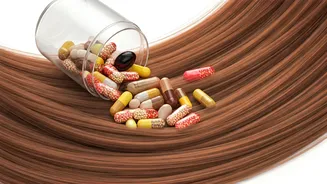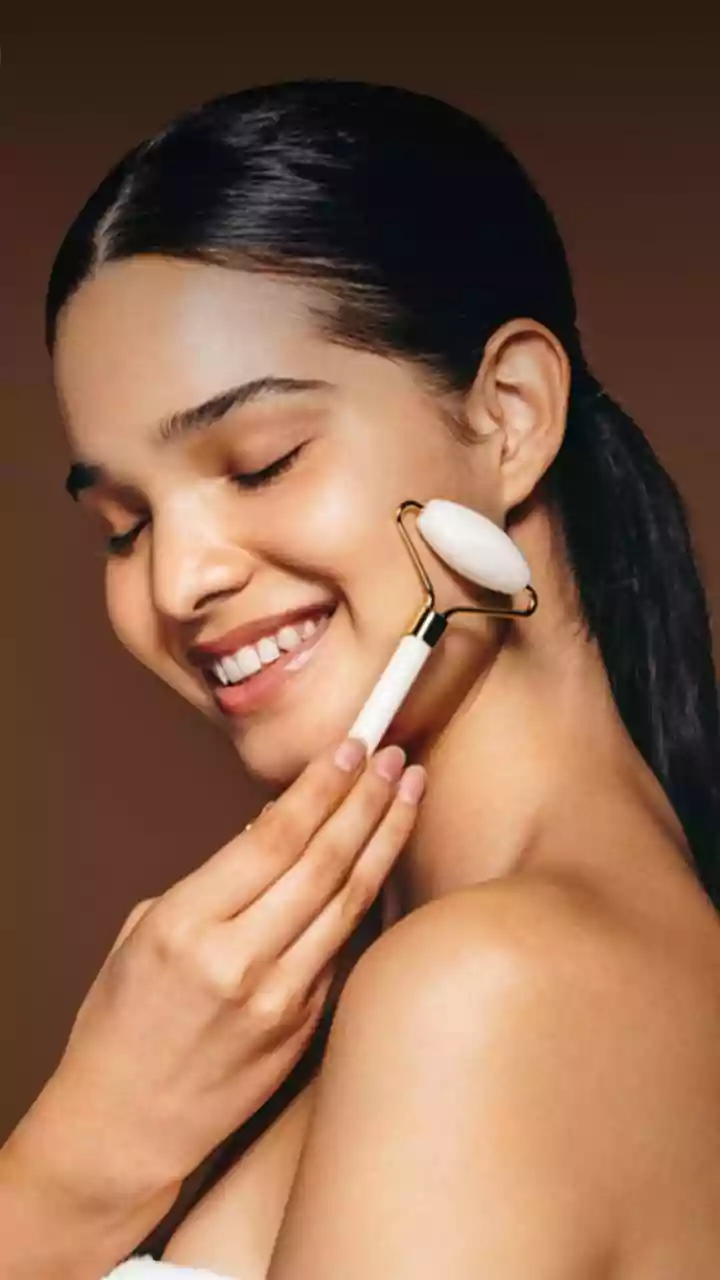Supplement Overload Risks
The seemingly harmless habit of taking supplements can sometimes backfire, particularly when it comes to your hair's well-being. Excessive intake of vitamins
and minerals can trigger a cascade of problems, leading to hair loss and other adverse effects. While supplements are often marketed as a solution for hair growth and overall health, overconsumption can disrupt the delicate balance within your body. The liver and kidneys work overtime to process and eliminate the excess nutrients, placing extra strain on these vital organs. This constant stress can manifest in various ways, with hair health being one of the first indicators of a problem. Furthermore, it's essential to recognize that individual needs vary significantly. What works well for one person might not be suitable for another, emphasizing the need for personalized health plans rather than a one-size-fits-all approach to supplementation. Always seek guidance from a healthcare professional to identify your specific requirements.
Signs of Damage
Recognizing the signs of supplement-induced hair damage is crucial for early intervention. One of the most common indicators is unexpected hair loss or thinning. You might notice more hair falling out when brushing or washing, or your ponytail might feel less thick. Beyond hair loss, changes in hair texture can also signal trouble. Your hair might become brittle, dry, or lose its natural shine. Another potential red flag is scalp irritation, such as itching, redness, or even flaking. These symptoms often result from an imbalance in the body's nutrient levels. Also, you could experience other symptoms, like skin changes, digestive problems, or fatigue, which indirectly impact your hair. If you observe any of these signs, it's wise to review your supplement regimen and consult a healthcare provider for a thorough assessment. Remember that hair health reflects your overall internal health, and addressing any imbalances is vital to restoring your locks' vitality.
Key Nutrient Imbalances
Certain nutrients, when taken in excess, are particularly likely to cause hair damage. For instance, excessive intake of vitamin A can lead to hair loss, as it disrupts the hair's natural growth cycle. Similarly, high levels of selenium, often found in hair growth supplements, have been associated with hair loss. Zinc, another popular supplement, can interfere with copper absorption when taken excessively, ultimately affecting hair health. Iron overload, common in some populations, can also be detrimental, as it may create oxidative stress that hinders hair growth. Additionally, an overabundance of B vitamins, while generally water-soluble, can still affect hair health if intake far exceeds needs. Regularly monitoring your supplement intake and possibly undergoing blood tests to evaluate your nutrient levels is essential. Such proactive measures can help prevent these imbalances and maintain your hair's health. Prioritizing a well-balanced diet that naturally provides these nutrients is usually a safer and more effective approach than relying solely on supplements.
Re-Evaluating Your Routine
If you suspect your supplements are harming your hair, the first step is to carefully assess your daily routine. Take a closer look at the different supplements you're taking, including the dosages and the reasons behind taking them. Consider whether these supplements are truly necessary for your body and hair, or if you can meet your needs through a balanced diet. Consult a healthcare professional or a registered dietitian to help you sort through your supplement intake. They can evaluate your individual needs and help identify any potential imbalances. They may recommend blood tests to determine your nutrient levels or suggest adjustments to your current regimen. Gradual changes are recommended when making modifications to avoid shocking your system. Always consult a healthcare professional before altering your supplement intake, ensuring that you're making choices that support your overall health and well-being. Listen to your body and adjust as needed, as hair health is closely linked to internal health.
Diet and Hair Health
A balanced and nutritious diet plays a crucial role in maintaining healthy hair. Prioritizing whole, unprocessed foods is generally better than relying solely on supplements. Include a variety of fruits, vegetables, lean proteins, and healthy fats in your diet. These foods provide the essential vitamins and minerals needed for hair growth and overall well-being. Foods rich in protein, such as eggs, chicken, and fish, are important for keratin production, the main structural component of hair. Iron-rich foods like spinach and lentils are essential for carrying oxygen to hair follicles, supporting hair growth. Include foods rich in essential fatty acids, such as avocados and salmon. These promote a healthy scalp and can lead to stronger, shinier hair. By focusing on whole foods, you provide your body with naturally occurring nutrients, reducing the risk of overload and ensuring your hair receives the support it needs.
Seeking Professional Guidance
When dealing with hair loss or other hair-related concerns, seeking professional advice is highly recommended. A dermatologist or trichologist can accurately diagnose the underlying causes of your hair issues. They can determine if your supplement intake is contributing to the problem. They may conduct various tests, such as blood tests or scalp biopsies, to get a clear picture of your hair's health. The information gathered will inform a more targeted treatment plan. Healthcare professionals can assess your overall health, identifying any underlying medical conditions that might be impacting your hair. This holistic approach ensures that any treatment addresses the root cause of the issue and not just the symptoms. They can provide personalized recommendations based on your individual needs, ensuring that you receive the most effective and safe treatment plan for your hair.


















